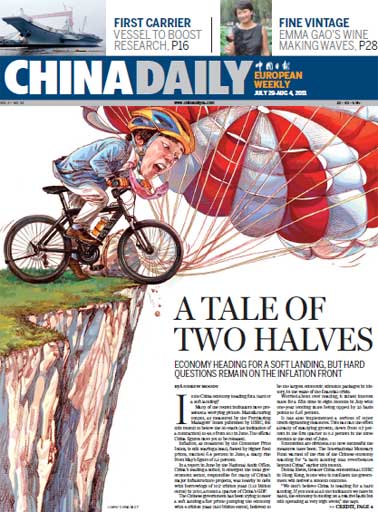Society
Tainted beef spreads in Japan
Updated: 2011-07-31 08:23
By Hiroko Tabuchi (The New York Times)
MINAMISOMA, Japan - Japanese agricultural officials say meat from more than 500 cattle that was likely contaminated with radioactive cesium has made its way to supermarkets and restaurants across the country in recent weeks. Officials say the cattle ate hay that had been stored outside and exposed to radiation from the Fukushima Daiichi nuclear power plant, which was rocked by explosions after the March tsunami.
The revelations intensified food safety concerns in Japan, underscoring the government's inability to control the spread of radioactive material into the nation's food.
Contaminated hay has been found at farms more than 140 kilometers from the Fukushima Daiichi plant, suggesting that the radioactive fallout has reached a wider area than first suspected.
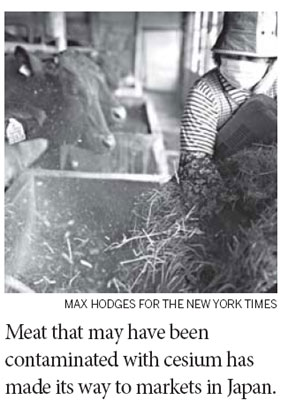
Still, because of a severe shortage of testing equipment, and local governments that are still swamped with disaster relief, only a small percentage of farm products grown in the region get checked for radiation.
The government has suspended agricultural shipments from within a radius of about 19 kilometers around the Fukushima plant, as well as a number of other identified radiation "hot spots." But farms outside those areas, even those relatively close to the plant, have faced few restrictions in shipping their produce.
For months the government balked at placing a wider ban on produce from the Fukushima region despite sporadic discoveries of contaminated products, for fear of bringing fresh confusion in the disaster-stricken area, putting thousands more people out of work and adding to growing compensation claims for Tokyo Electric Power.
But with the number of contamination cases rising, the government is moving to ban beef shipments from Fukushima Prefecture, an area of 14,500 square kilometers. Yukio Edano, the chief cabinet secretary, said on July 19 that the government was in the "final stages" of coordinating a ban.
Japanese officials insist that even at levels above government limits, radioactive cesium will not have an immediate effect on health. Longer-term effects are less known, however. Many experts say that prolonged exposure to radiation can lead to a higher incidence of cancers like leukemia.
"If you eat it every day, it might be a problem," Goshi Hosono, the minister in charge of the nuclear issue, said. "But if you eat just a little, there would be no big effect on your health."
Officials testing hay fed to cattle at one ranch here in Minamisoma, a city in Fukushima Prefecture, detected radioactive cesium 250 times above Japan's official limit. Beef from that farm contained almost five times the official limit.
Also, cattle from some areas with high radiation readings had been checked for radiation on the surface of their skins before being shipped to market; but those checks do not sufficiently measure whether cattle have been exposed to radiation internally by eating contaminated feed, officials say.
Meanwhile, Fukushima officials said they were starting inspections of all 4,000 or so cattle farms in the prefecture to make sure that no one else was using radioactive hay. Ranchers have been asked to comply with a new voluntary shipment ban.
Yuta Furuyama, who has 233 cattle in Minamisoma, is certain his herd is clean. His cattle are kept indoors, and their feed is stored in thick plastic bags, out of the rain. He said he was careful to not even bring tools that he has used outside into the cowshed, for fear of contaminating his herd, which he is eager to have tested for radiation so that his cattle can be safely sold later this year.
"I hope they will finally step up the checks," he said. "If the government had given proper advice and done proper tests in the first place, things wouldn't have gotten out of hand."
Some farms have sold off their herds in recent weeks, at even lower prices than the Fukushima label now fetches. After the cattle were gone at a large farm in the neighboring village of Iitate, Akio Takahashi, who has worked there for 23 years, was let go.
"It's finished," he said. "Nobody will ever want to eat beef from Fukushima again."
The New York Times
E-paper
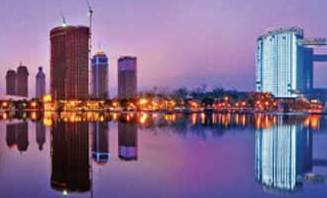
Double vision
Prosperous Hangzhou banks on creative energies to bridge traditional and modern sectors
Minding matters
A touch of glass
No longer going by the book
Specials
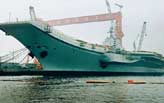
Carrier set for maiden voyage
China is refitting an obsolete aircraft carrier bought from Ukraine for research and training purposes.
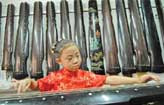
Pulling heart strings
The 5,000-year-old guqin holds a special place for both european and Chinese music lovers
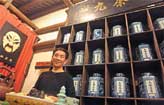
Fit to a tea
Sixth-generation member of tea family brews up new ideas to modernize a time-honored business
